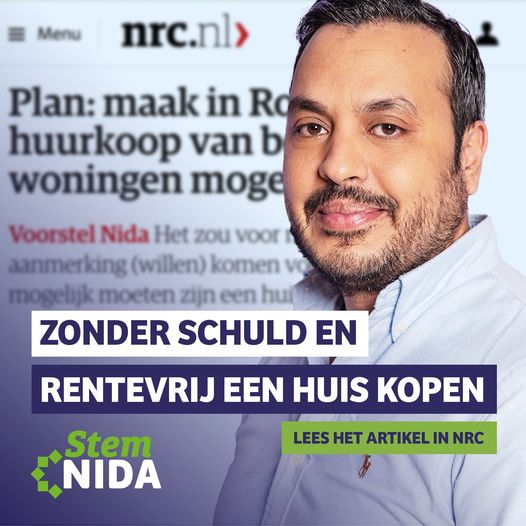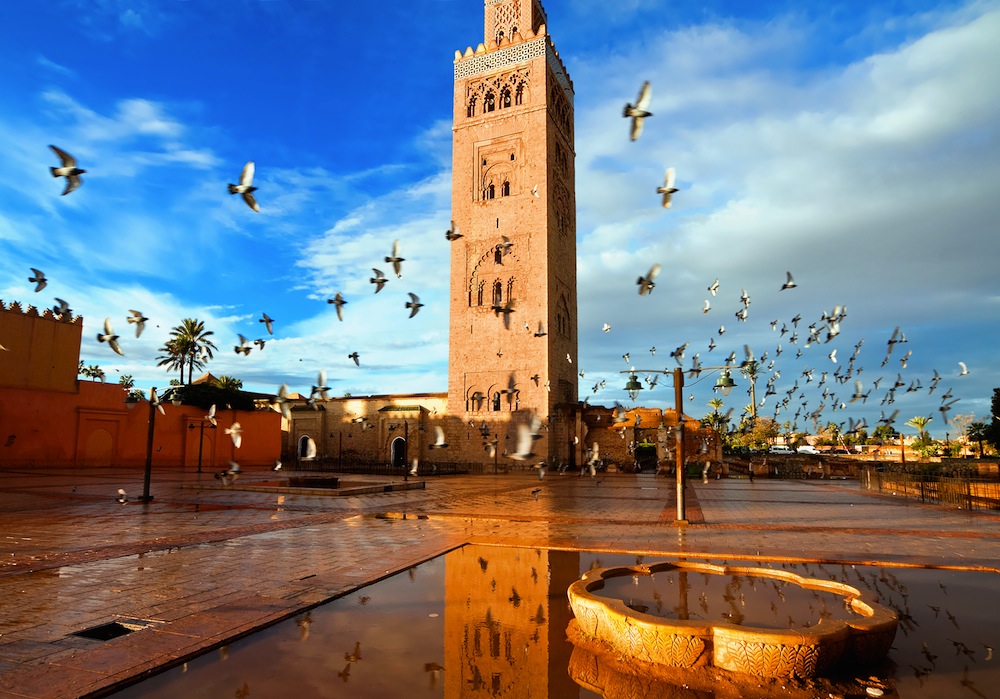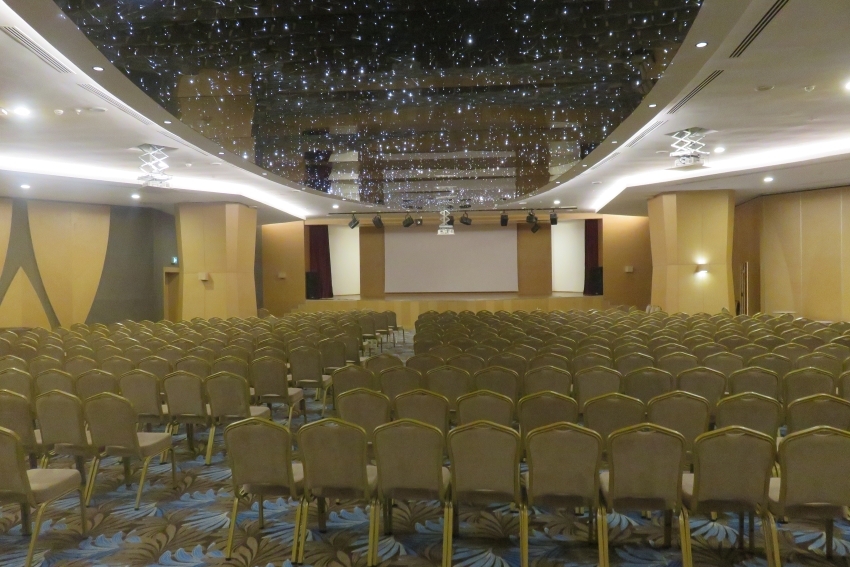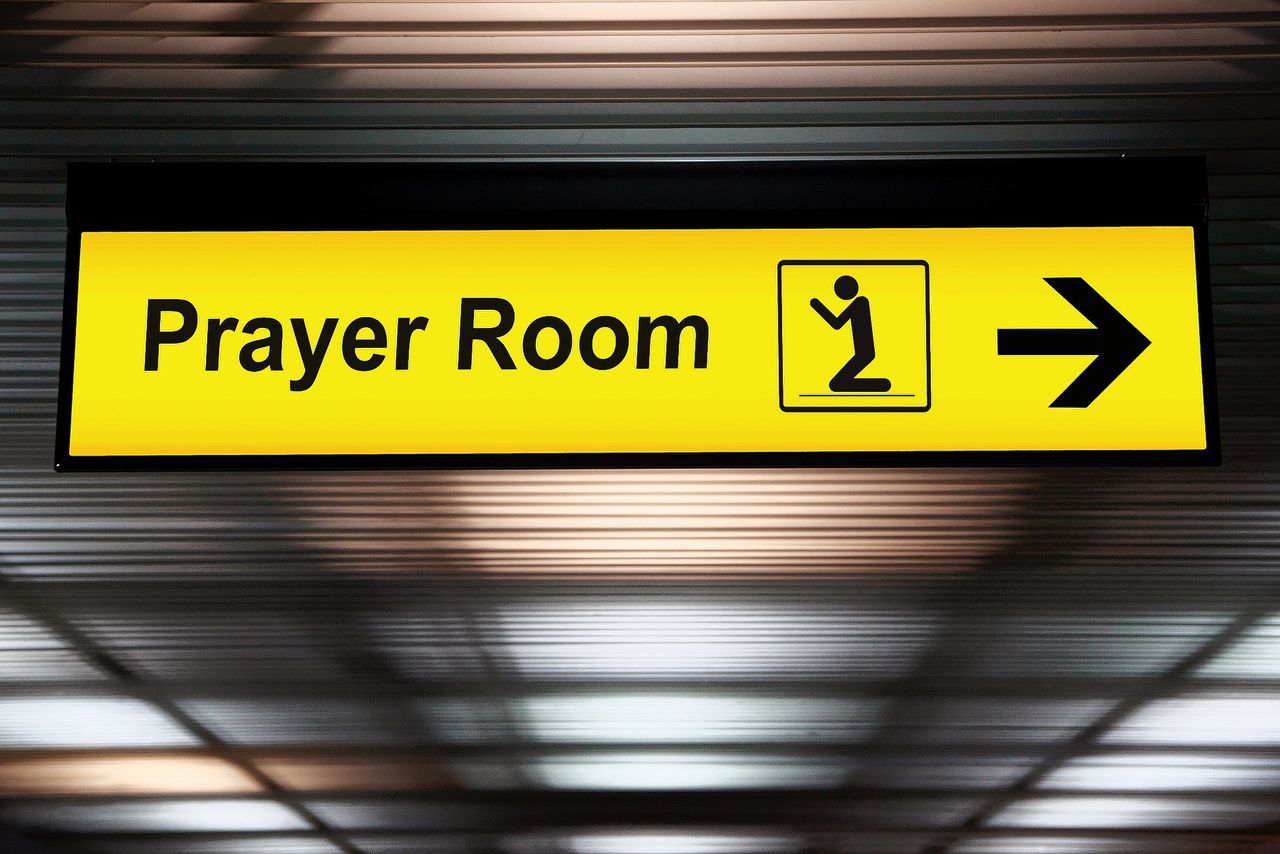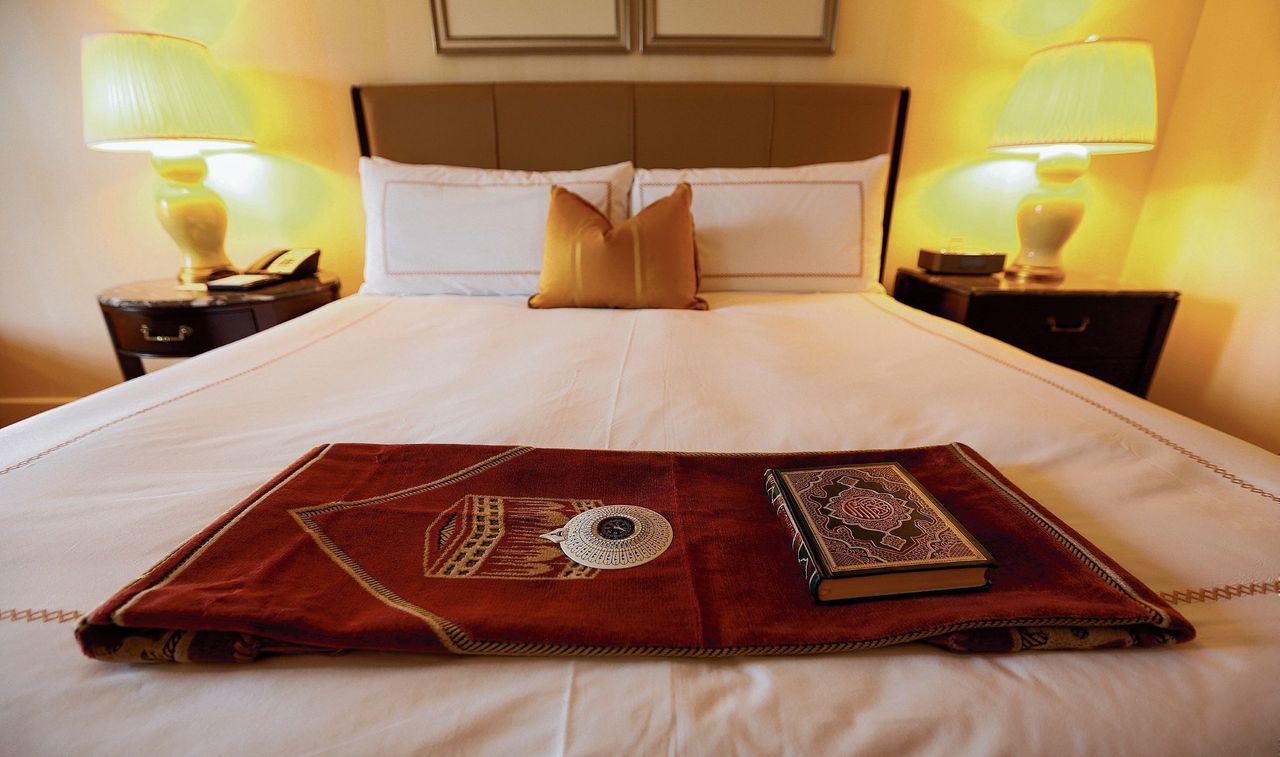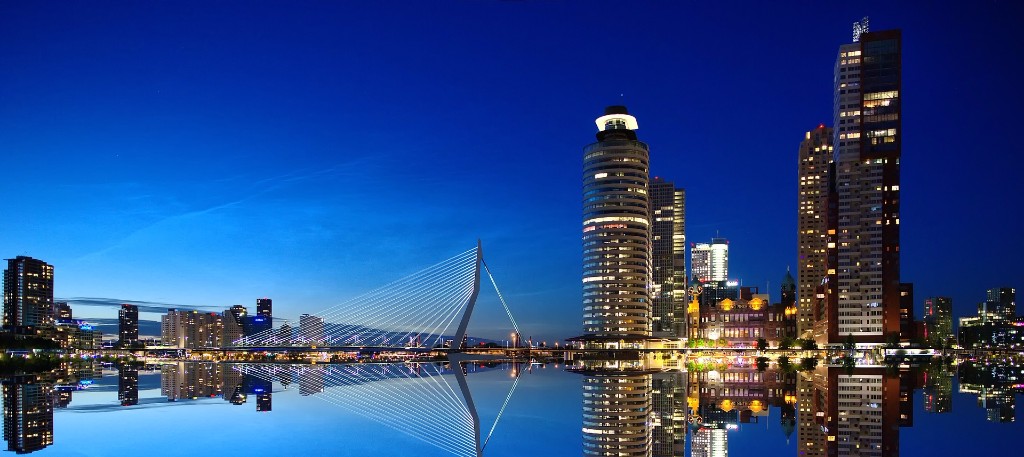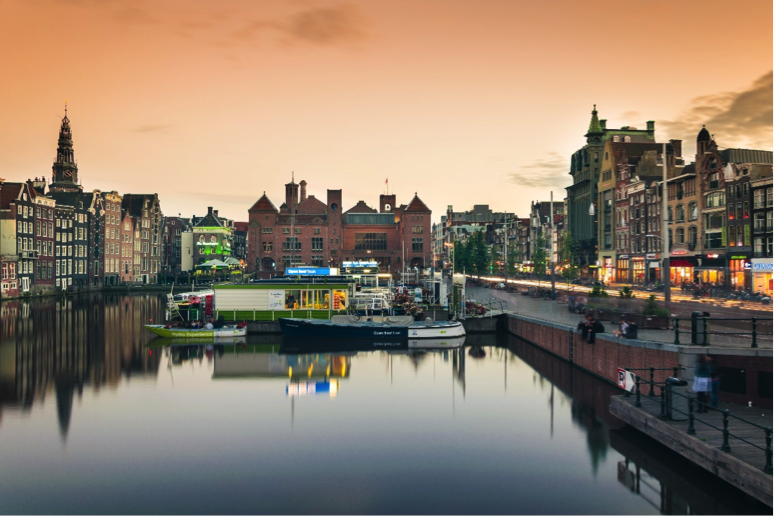Le tourisme halal est également présent à Halal Expo Europe
Halal Expo Africa a lieu à Marrakech les samedi 01 et dimanche 02 décembre. Un lieu où les entrepreneurs nationaux et étrangers peuvent transférer, afficher et proposer leurs connaissances, produits et services dans le domaine du halal. Le tourisme halal est un phénomène moins exposé dans le monde du halal, mais néanmoins en croissance. Elamraoui est également présent à la foire. Il animera un séminaire le jeudi 16 avril sur les voyages halal.
Grâce à ses nombreuses activités et à ses nombreuses années d’expérience, Elamraoui est un spécialiste du tourisme (halal). Il est consultant auprès de plusieurs ministères du tourisme de la région MENA (Moyen-Orient, Afrique du Nord). Il est également propriétaire et voyagiste du groupe Atlasnomad, un portail dans le domaine des voyages dans le segment des voyageurs réguliers et religieux. L’année dernière, il a fondé le label Hajjinfo, “l’organisation qui fournit aux consommateurs et aux entreprises des informations sur le marché du hajj et de la umrah”. Le tourisme halal est un phénomène émergent dans le monde des voyages.
Que signifie exactement le tourisme halal?
«Le tourisme halal est un nouveau« produit »sur le marché du tourisme, développé pour répondre aux besoins et aux croyances du voyageur musulman. Cela peut varier des spas halal aux salles de prière dans les aérogares. De plus en plus d’hôtels sont également occupés à faire des ajustements pour attirer les touristes musulmans. Vous devriez penser à la nourriture halal, à des piscines séparées pour les hommes et aux femmes, à l’absence de boissons alcoolisées et à des plages à l’étiquette de la natation islamique.
Les affaires sont florissantes et l’industrie touristique mondiale se prépare à l’expansion attendue des voyages islamiques au cours des dix prochaines années. ”
A quelles agences de voyages les musulmans peuvent-ils s’adresser pour un voyage halal?
«Outre les voyages de hajj et d’umrah proposés par les agences de voyages, Atlasnomad est l’une des trois agences de voyages néerlandaises spécialisées dans les voyages halal. Nous avons des hôtels conformes à la réglementation islamique. Il n’ya pas d’alcool servi ici et il existe des piscines séparées, des zones de loisirs et des installations de spa pour hommes et femmes. Les programmes de divertissement pour adultes et enfants sont conformes aux normes islamiques. De plus, diverses activités sportives sont organisées. Cela va même si loin que les femmes peuvent se plonger dans le code vestimentaire islamique. ”
Dans quelles régions du monde le tourisme halal est-il en plein essor?
«Dans de nombreux pays différents et parfois inattendus. Le Japon, par exemple, est un pays assez homogène avec seulement 100 000 musulmans pratiquants. Jusqu’à présent, les voyageurs musulmans n’ont pas vraiment vécu des vacances dans ce pays aussi agréables. Cependant, cela change. Les restaurants japonais proposent de la viande de baleine halal et les principaux aéroports disposent désormais de salles de prière et proposent des hijabs fabriqués à partir de soie japonaise et d’autres souvenirs certifiés halal. Le tourisme au Japon est fortement encouragé en Asie du Sud-Est, comme l’Indonésie, le pays qui compte le plus grand nombre de musulmans au monde. Le tourisme halal est également en route en Nouvelle-Zélande. Ce pays veut également profiter de sa position géographique par rapport à quelques pays comptant de nombreux musulmans. Ces dernières années, le tourisme musulman en Nouvelle-Zélande s’est considérablement développé. En août dernier, le nombre de visiteurs musulmans dans le pays a augmenté de 141% par rapport au même mois de l’année dernière. ”
Et un autre exemple, quelque chose de plus près de chez vous?
«Un autre exemple est la Croatie. Le premier certificat halal en Croatie a récemment été attribué au groupe hôtelier le plus important et le plus puissant de l’île de Krk: Hoteli Baška. Avec le certificat halal, Hoteli Baška souhaite indiquer que la qualité de ses services pour tous les clients, y compris ceux d’origine islamique, est primordiale. ”
Le secteur du tourisme dans le monde islamique ne me semble pas non plus être halal par définition. Comment se manifeste le tourisme halal dans cette région?
«La Turquie investit beaucoup dans ce domaine, en raison de la demande croissante de tourisme halal dans le pays.
Le pays tente de se positionner comme une importante destination de santé et de bien-être pour les touristes fortunés d’Europe et du Moyen-Orient. La Turquie occupe une position idéale et se positionne comme un phare entre l’impact négatif de l’euro et l’instabilité politique au Moyen-Orient. ”
Que pouvez-vous trouver sur le sol néerlandais?
«Je viens de mentionner la Croatie, mais d’autres pays européens investissent également dans le tourisme halal. Une conférence s’est tenue à Rome en novembre dernier sur les investissements dans le tourisme halal. L’Italie est bien sûr un véritable pays touristique et souhaite également répondre aux besoins des touristes musulmans. L’Espagne a également organisé une conférence sur le tourisme halal l’année dernière. Aux Pays-Bas, nous voyons quelques petits projets, tels que des hôtels. Je considère cet investissement dans le tourisme favorable aux musulmans comme un pas dans la bonne direction. ”
Y a-t-il des choses que les agences de voyages compilent et offrent des rencontres halal?
«Il n’y a actuellement que trois agences de voyages proposant des voyages halal. Le reste des agences de voyages ne peuvent pas faire cela en raison d’un manque de connaissances et d’expertise. Je remarque que les voyages du Hajj et de la Omra, en particulier, sont confrontés à de nombreux problèmes. L’organisation, la fiabilité et le rapport qualité-prix laissent encore beaucoup à désirer. C’est grave, car la demande pour cela ne fait qu’augmenter. C’est pourquoi nous avons lancé une vaste enquête sur la structure des prix et sur les moyens de les réduire. Il est prévu de publier les résultats de la recherche en décembre 2015 “.
Vous êtes un voyagiste, avez-vous vécu un voyage halal que vous recommandez à d’autres personnes?
“En plus de la région MENA, il y a deux voyages spirituels que je souhaite recommander aux musulmans: l’Andalousie [Espagne, éd.] Et Jérusalem en combinaison avec la Jordanie.”
Qu’attendez-vous pour l’avenir, remarquez-vous que la demande de voyages halal est en augmentation et, dans l’affirmative, quelles en sont les raisons?
«Les voyages dans nos 10 principales destinations font actuellement l’objet d’une forte promotion en Asie du Sud-Est et au Moyen-Orient. En Malaisie et en Thaïlande, par exemple, l’obligation de visa a été assouplie. En Europe, et particulièrement dans des pays tels que l’Italie, la France et l’Espagne, le tourisme halal est également en croissance. Le tourisme est une activité importante pour ces pays. Il génère généralement 15% du PIB et souvent plus de 10% de l’emploi total. Sur la base de nos prévisions pour 2015-2020, je pense que le nombre d’hôtels et d’installations de loisirs halal représentera jusqu’à 25% du nombre total de lits d’hôtel. ”
